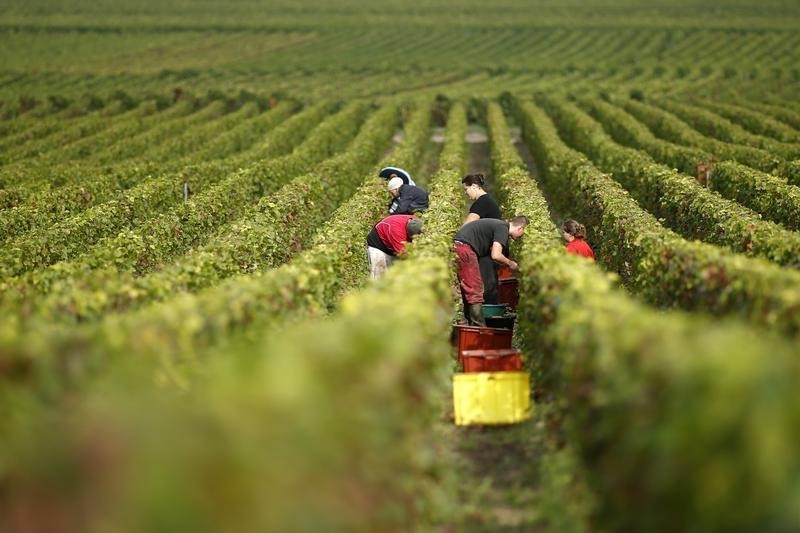* Australia, NZ food producers see strong Lunar New Year demand
* But say air freight space limited as other products take up room
* Also difficult to perfect timing of production cycles
By Jarni Blakkarly and Charlotte Greenfield
SYDNEY/WELLINGTON, Feb 5 (Reuters) - As Asian appetite for delicacies such as lobster and cherries soars for the Lunar New Year, some producers in Australia and New Zealand have been facing problems getting their lucrative cargo to consumers on time.
Farmers and fishermen have been jostling for limited air freight space and trying to perfect the timing of production cycles for a peak in demand, as hundreds of millions of people in countries such as China prepare to eat lavish meals during next week's festival.
Those setbacks could undermine a drive to dominate Asian markets for premium foods, with Australia looking to rebalance its economy as a mining investment boom fades and New Zealand trying to broaden its food sector beyond dairy.
"This year we have had some issues with air freight to Hong Kong, there is so much competition to book space for New Year and it has been more difficult because of how much powdered milk is going over," said Colleen Dangerfield, export manager at Australian fruit grower V.F. Siciliano & Sons.
The popularity of Australian and New Zealand powdered milk has surged in China following safety scares around local dairy products.
Dangerfield added that the company had planted trees to target the market for Lunar New Year, for which the exact date shifts each year.
"We plant varieties that fruit in January and have good sizes and good sugars that the Asians prefer," she said. "But obviously Chinese New Year changes every year so its hard to get it perfect."
Some fishing industries have also had difficulties regulating their catch to meet demand. Australia's Western Abalone Processors used to pick around two-thirds of its yearly quota of the sea snails in January for the Lunar New Year market. But changes last year to fishing laws in parts of southern Australia mean there are now monthly quotas.
Rock lobster suppliers, however, have had some success in gearing their output to meet peak demand.
Fisherman in Fiordland, a remote region on New Zealand's South Island, stop fishing towards year-end to ration their government-mandated catch quotas.
"Instead of using them in October when the prices are lower, they're saving those catch rights to when the prices are higher in January and February," said Daryl Sykes, executive officer of the New Zealand Rock Lobster Industry Council.
"GOT TO EAT"
Monthly Australian exports of rural goods, excluding meat, grain and products such as wool, rose more than 10 percent in the second half of 2015 from a year earlier, peaking at a record A$2.04 billion ($1.46 billion) in November. The data is not broken down by product or destination.
Seafood exporters and fruit growers are optimistic that sales will only get better in future years as the China-Australia Free Trade Agreement, signed in June, gradually removes high tariffs on food exports.
"We haven't seen any downturn, people got to eat," said Peter McDonald, sales director at Australia's Capilano Honey Ltd CZZ.AX , referring to the broader slowdown in China's economy.
But Simon Boughey, CEO of industry body Cherry Growers Australia, underscored that getting room on planes was big a problem, saying that cherry sales to China could double if there was enough space.
"The demand is there, we just can't keep up, we need that ... air space. It's an issue that needs to be sorted before next season."
